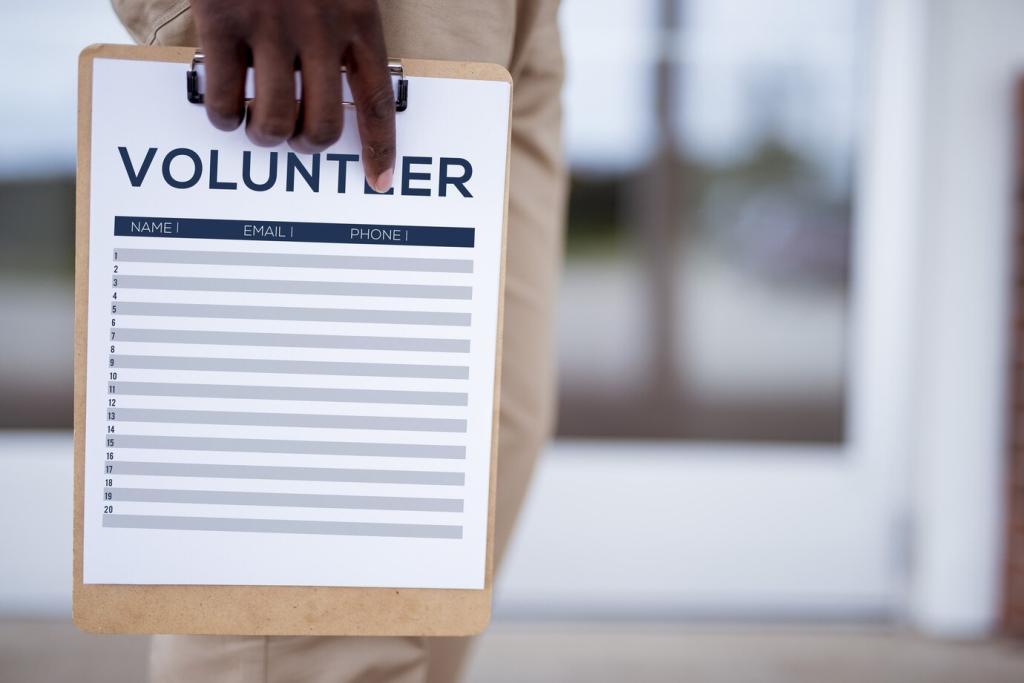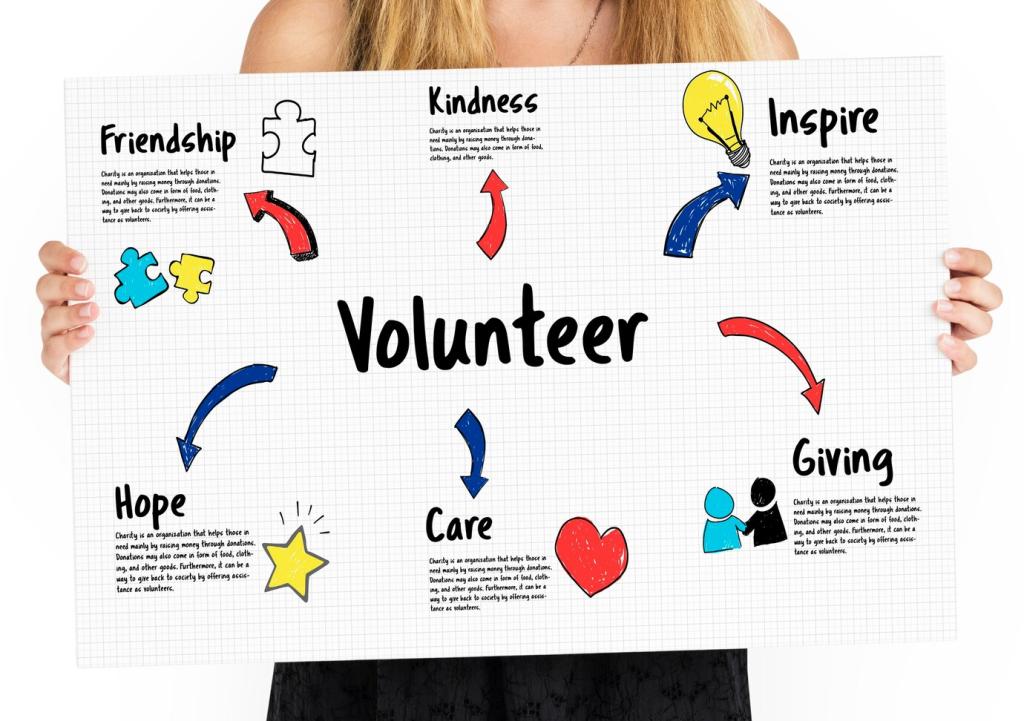Volunteer Contributions to Sustainable Community Development
Chosen theme: Volunteer Contributions to Sustainable Community Development. Welcome to a space where local energy reshapes futures. Together we explore how neighbors, friends, and everyday citizens co-create lasting change—one shared hour, one planted seed, and one courageous idea at a time.
Volunteers bridge the gap between planning and practice, ensuring community development projects reflect local priorities, cultural context, and feasible timelines. When residents lead, solutions fit daily realities, strengthening results and elevating dignity alongside measurable impact.
Why Volunteers Are the Engine of Sustainable Change
Volunteer-led efforts build trust—the invisible infrastructure that keeps projects alive after the ribbon-cutting. Trust invites participation, accelerates learning, and anchors long-term stewardship, especially for maintenance-heavy initiatives like community gardens, water points, and neighborhood composting hubs.
Why Volunteers Are the Engine of Sustainable Change
Skills-Based Volunteering That Multiplies Community Capacity
Engineers, builders, and planners can prototype low-cost, low-carbon designs. Volunteers then teach maintenance, documenting steps with photos and labels so neighbors manage repairs themselves, protecting budgets and keeping essential services running long after grants end.


Skills-Based Volunteering That Multiplies Community Capacity
Accountants, lawyers, and procurement specialists help grassroots teams track funds, set transparent policies, and register associations. A few evenings of mentorship can unlock microgrants, ethical partnerships, and the confidence to say no to unsustainable proposals.
Nature-Positive Projects Led by Neighbors
Volunteer planting days are about more than saplings. Communities map heat islands, choose native species, and schedule watering shifts, turning shade into a collective asset. The result is cooler summers, lower energy bills, and safer outdoor play.
Nature-Positive Projects Led by Neighbors
Neighborhood compost brigades, repair cafés, and swap-meets reduce landfill waste while building relationships. Volunteers guide safe sorting, teach repair basics, and track diversion rates, proving that circular habits can be joyful, educational, and proudly local.
Nature-Positive Projects Led by Neighbors
Volunteers pair gardening with workshops on soil health, seed saving, and water-wise irrigation. Harvest festivals celebrate cultural recipes, honoring elders’ knowledge while introducing children to fresh food, pollinators, and the science beneath their feet.
Inclusion First: Designing With, Not For
Volunteer facilitators host small, trusted conversations—on doorsteps, in laundromats, and at youth hangouts. They bring snacks, childcare, and interpretation, ensuring plans reflect lived experience rather than assumptions from a distant meeting room.
Inclusion First: Designing With, Not For
Teams audit paths, signage, and seating with residents who use wheelchairs, canes, or strollers. Volunteers prototype ramps, tactile markers, and shade spots, proving accessibility is not an add-on but a design principle that benefits everyone.
Volunteers co-create clear indicators—trees survived after one summer, households accessing clean water, youth leading sessions. A few consistent measures, collected monthly, reveal trends early and guide timely course corrections without expensive systems.
Measuring What Matters: Volunteer-Led Impact Tracking

This is the heading
Lorem ipsum dolor sit amet, consectetur adipiscing elit. Ut elit tellus, luctus nec ullamcorper mattis, pulvinar dapibus leo.

This is the heading
Lorem ipsum dolor sit amet, consectetur adipiscing elit. Ut elit tellus, luctus nec ullamcorper mattis, pulvinar dapibus leo.
Resilience, Preparedness, and the Long Game
Neighbors as First Responders
Training in basic first aid, check-in trees, and evacuation maps ensures help arrives within minutes. Volunteers lead drills that feel like block parties, so kids know the plan and adults remember their roles under pressure.
Local Energy and Water Security
Volunteer coalitions pilot rainwater harvesting, solar lighting for safer streets, and energy audits for community halls. These projects reduce bills, cut emissions, and keep essential services functioning during outages or heatwaves.
Keep the Circle Going
After every project or crisis, volunteers host reflection circles: what worked, what failed, and what wisdom we carry forward. This practice grows institutional memory, making each season safer, fairer, and more sustainable than the last.
Join our mailing list
